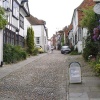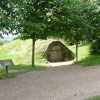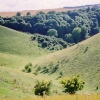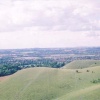Please login or click here to join.
Forgot Password? Click Here to reset pasword
 |  |  |  |  |  |
| Ken Marshall Posts: 804 Joined: 20th Jun 2012 Location: Australia | quotePosted at 01:22 on 14th April 2013 What is the best way to enhance your skills as an amateur outdoor photographer? 1 )Buy the most expensive camera and equipment you can afford. 2) Do a photography course. 3) Learn by reading photography magazines and books. 4) Read the manual that comes with your camera 5) Find pictures that stop you dead in your tracks. Ask yourself why this occurred and use the info in your next outing. 6)Take a workshop. 7) Join a camera club. 8) Go out and experiment. Try new techniques, shutter speeds, panning, screw on a filter ,etc. 9) All of the above. I was wondering whether I should do a short photography course or just learn from reading photography magazines and books.Photography seems to be all about perception. The eye is more important than the camera. Approach every subject with the eye of a painter. Edited by: Ken Marshall at:14th April 2013 01:32 |
| Dave John Posts: 22335 Joined: 27th Feb 2011 Location: England | quotePosted at 08:34 on 14th April 2013 Hi Ken......what a loaded question! ! ! Basically I would say just get out and take photos, then compare them with others whether it be in magazines, books, online (POE) and be honest with yourself..... But in answer to your points above 1 I have always worked on the principle that you should buy the best you can afford......but where camaeras are concerned you should prioritise for the best lens you can afford as there can be a huge different between the different price ranges. 2 Never been a great one for course, other than for beginners, or maybe studio style work. Outdoor course come very expensive and quite often are based on several days hotel based at any given location 3 Magazines and books can help in that you are usually given quite detailed info onhow some shots have been taken and subsequently processed. Magazines often run 'special' features so look out for the one that you need.....don't buy every magazine going...... you will need the money for memory cards and other bits and bobs 4 DEFINITELY read the manual......even if you keep in your bag to refer to in awkward situatons 5 Without doubt analyse photos you particular like. But try to work out why the pic works BEFORE you read the explanation and then see if you are on the right track. We all use other peoples work for inspiration. That is how I came across POE, and probably countless others. 6 Workshops.....very similar to courses and can work out expensive so look into them very carefully before parting with hard earned cash. 7 Camera clubs are a very moot pint. You either like them or you don't. Personally I don't!! My experience of 2 or 3 clubs (societies!!!) albiet many years was that the majority of people there were equipment snobs. 8 Without a doubt this is the best one. Get out and take photos. Photography nowadays is so much cheaper than it used to be. You buy your camera and lens along with rechargeable battery and charger, a few memory cards and you are set. No film or chemicals to buy.So YES basically get out and get shooting. Take your basic shots then try some of the ideas you have got from magazines or freinds......but above all GET OUT TAKE PICTURES AND ENJOY IT. Take loads of pictures from varying angles and viewpoints but be very honest with yourself when you look at them on the PC. I tend to work on a 20% success rate but by being brutally honet it often comes in lower than that..... Hope that is of interest Ken
|
| Andrew Marks Posts: 59 Joined: 1st May 2011 Location: England | quotePosted at 10:16 on 14th April 2013 Pick your site carefully and then go for it. Learn as much as you can on the job because reading a manual means nothing without using the equipment. Make mistakes and learn from them, read magazines and books but always have your camera to hand to see what they are talking about when they go technical. Your camera will take pictures that are as professional as the best, but only when you learn the basics, so an expensive camera isn't the absolute necessity. In fact, an expensive, complicated camera is a hindrance when learning. Get good glass (lenses) to go with your camera and the picture quality will follow, whatever grade of camera you have. As Ken says, just get out and shoot. Be brutal when you look at the results and learn how your post-processing can give you the best. Often a horrid looking pic can be saved into something wonderful with effort. What this waffle boils down to is, the only way to really learn is use the thing, continually. Take pictures of anything (within reason of course - let's keep it within the realms of decency!) and everything. Enjoy Andy |
| cathyml Posts: 23275 Joined: 25th Jan 2010 Location: South Africa | quotePosted at 12:39 on 14th April 2013 My tips for what they are worth:-)) 1. Practise, practise, practise - anything and everything - then decide what worked for you and what didn't. 2. Focus - make sure you have a point of focus - don't just take a whole landscape - find something interesting in that landscape and compose your shot around it! 3. Light - Makes all the difference - best time of time is generally when the sun is lower in the sky and casts nice shadows. You can also try the times around sunrise & sunset! 4. Study your subject, try it from different angles, find what works best for your eye! Try getting closer in or zoom (but try to find something to stabilise the camera on - or carry a tripod). 5. You definitely need to have read the manual and know what buttons do what!! 6. Take several shots just playing with the aperture, ISO etc., and keep a notebook handy to jot down the settings you used. You will soon see what works well in various situations. 7. Practise, practise, practise! It costs you nothing and is the best educator! This is from my experience only - we don't have photo/camera clubs in the middle of nowhere! But I do belong to Flickr and have learned so much from comments on my shots and looking at other's work! And trying every type of challenge that comes along. (I only have a compact Point & Shoot though!) |
MikeT Posts: 1190 Joined: 2nd Apr 2013 Location: England | quotePosted at 12:54 on 14th April 2013 My camera stays on auto all the time, with the modern cameras, I find as long as you focus well & keep it steady you generally get a good picture, sometimes I may need to do a bit of editing on pc. but there again I know nothing about cameras, so it suits me |
rustyruth Posts: 18773 Joined: 23rd Oct 2012 Location: England | quotePosted at 13:05 on 14th April 2013 I'm a bit like Mike, I do use auto a lot, but I have settings for landscape, beach and of course snow which has been used a lot recently. I'm always very aware of where the sun is if I'm taking outdoor/landscapes shots, getting the sun in the right place can make a big difference to the picture. Like Cathy mine is a compact point and shoot, I'm also a member of Flickr and spend a lot of time looking at other peoples shots and try to learn from them. A man I know from another forum has a very expensive camera set up and he posts some stunning outdoor pictures, it's always nice though when he passes comments on mine, and he's recently added me as a contact on Flickr, so I can't be doing to bad. I've had the camera so long now the manual is in tatters |
| Dave John Posts: 22335 Joined: 27th Feb 2011 Location: England | quotePosted at 14:15 on 14th April 2013 The old adage 'It's not what you've got, but how you use' comes to mind, but as i have said before it ' all singing all dancing or point and shoot' it is you initial vision which matters and how you interpret it. But |
| Ken Marshall Posts: 804 Joined: 20th Jun 2012 Location: Australia | quotePosted at 15:21 on 14th April 2013 |
| Martin Humphreys Posts: 58 Joined: 31st May 2012 Location: England | quotePosted at 20:56 on 14th April 2013 I would add that maybe just as important is .... a good eye.. as to what would make a nice & interesting image & a little time to think & compose before you take the shot can make all the difference ? |
| Dave John Posts: 22335 Joined: 27th Feb 2011 Location: England | quotePosted at 21:41 on 14th April 2013 Good point from Martin, also check all areas of the viewfinder for stuff that shopuldnt be there. Another point worth remembering is that on the vast majority of cameras the viewfinder only show 85-90% of the scene. |